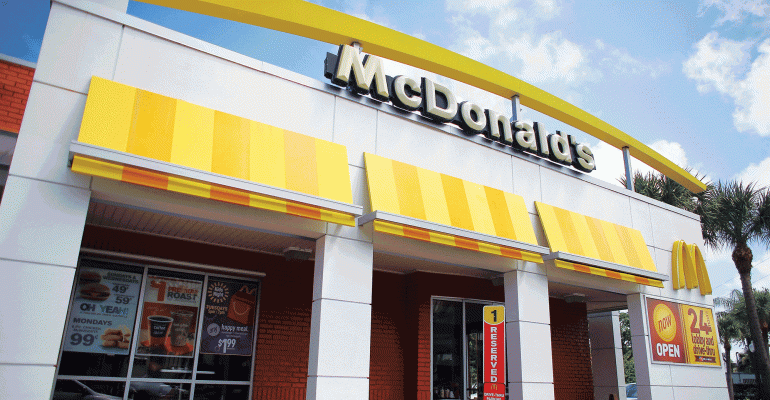 This post is part of the On the Margin blog.
This post is part of the On the Margin blog.
Earlier this week, the New York Times wrote a piece on a study by a pair of Princeton economists on a little-known provision in many franchise agreements that could, they say, keep down wages.
Such clauses restrict competition for workers between different franchisees of a single franchisor.
In other words, under such deals a McDonald’s Corp. operator cannot poach employees from another McDonald’s operator.
By restricting the movement of workers between these franchisees, theoretically that holds down labor costs by reducing an employee’s leverage over their current employer. So they cannot move to another franchisee to increase wages, not without leaving the brand.
The economists, Alan B. Krueger and Orley Ashenfelter, said fast-food restaurants are more likely than other industries to use such clauses. They said that such provisions might help explain why unemployment has reached a 16-year low while “wage growth has remained surprisingly sluggish.”
That is indeed a puzzle, but I’m not sure how much of a role these provisions play in the problem, mostly because the prevalence of large-scale, multi-unit operators in many fast-food restaurant franchises frequently renders such provisions effectively moot.
Such clauses need to go. Franchise advocates argue vehemently that franchisors are not joint employers of their franchisees, and that franchisees are independent businesses that make their own employment decisions. Provisions that restrict who they can or cannot hire fly in the face of that idea, especially given that employees with existing experience within a brand are clearly better qualified workers.
Indeed, McDonald’s has already eliminated its no-poaching provision, according to the Times, probably because it’s been at the forefront of the joint-employer argument. Other franchisors will probably follow suit eventually.
There’s little question that McDonald’s provision, assuming it was used, would impact employee movement because that company’s franchisees tend to be small-scale operators. If my eldest son were to apply for a job at McDonald’s, for instance, he’d have a choice of three that are close to home, and all three are owned by different franchisees.
Other chains have small-scale franchisees, too, such as Culver’s, Subway and Chick-fil-A.
But these types of franchisees are increasingly rare. Franchisors have aggressively courted larger operators, especially after the recession restricted the amount of financing available to franchisees. That’s especially true among well-established fast-food chains like McDonald’s primary competitors, Burger King and Wendy’s, or Taco Bell, KFC and Pizza Hut. And those are the types of brands with enough of a presence in many markets where such provisions could come into play — fast-food workers will travel only so far, after all.

If a franchisee owns all the locations in a specific market, then collusion no longer matters.
We spoke with multiple operators, who said such provisions rarely come into play.
Regardless, the study had some people in the industry scratching their heads this week because there’s plenty of evidence to suggest that fast-food wages are going up.
Earnings for leisure and hospitality workers, which includes restaurant employees, have increased 3.5 percent over the past year, according to federal data — faster than the rate of increase for all workers.
Among publicly traded fast-food chains, labor costs as a percent of sales were 30.9 percent in the first quarter, according to the consulting firm BDO. That was up 1.1 percentage points from the same period a year earlier. Reduce the 0.6-percent same-store sales decline, and the implied increase in labor costs was 50 basis points.
And while such provisions could thwart competition between franchisees of the same concept, they don’t keep a McDonald’s employee jumping to a different chain.
“If a McDonald’s employee applied at a Jack in the Box, they’d hire them in a second," restaurant consultant John Gordon told me. "They’re that desperate for workers.”
Jonathan Maze, Nation’s Restaurant News senior financial editor, does not directly own stock or interest in a restaurant company.
Contact Jonathan Maze at [email protected]
Follow him on Twitter: @jonathanmaze





